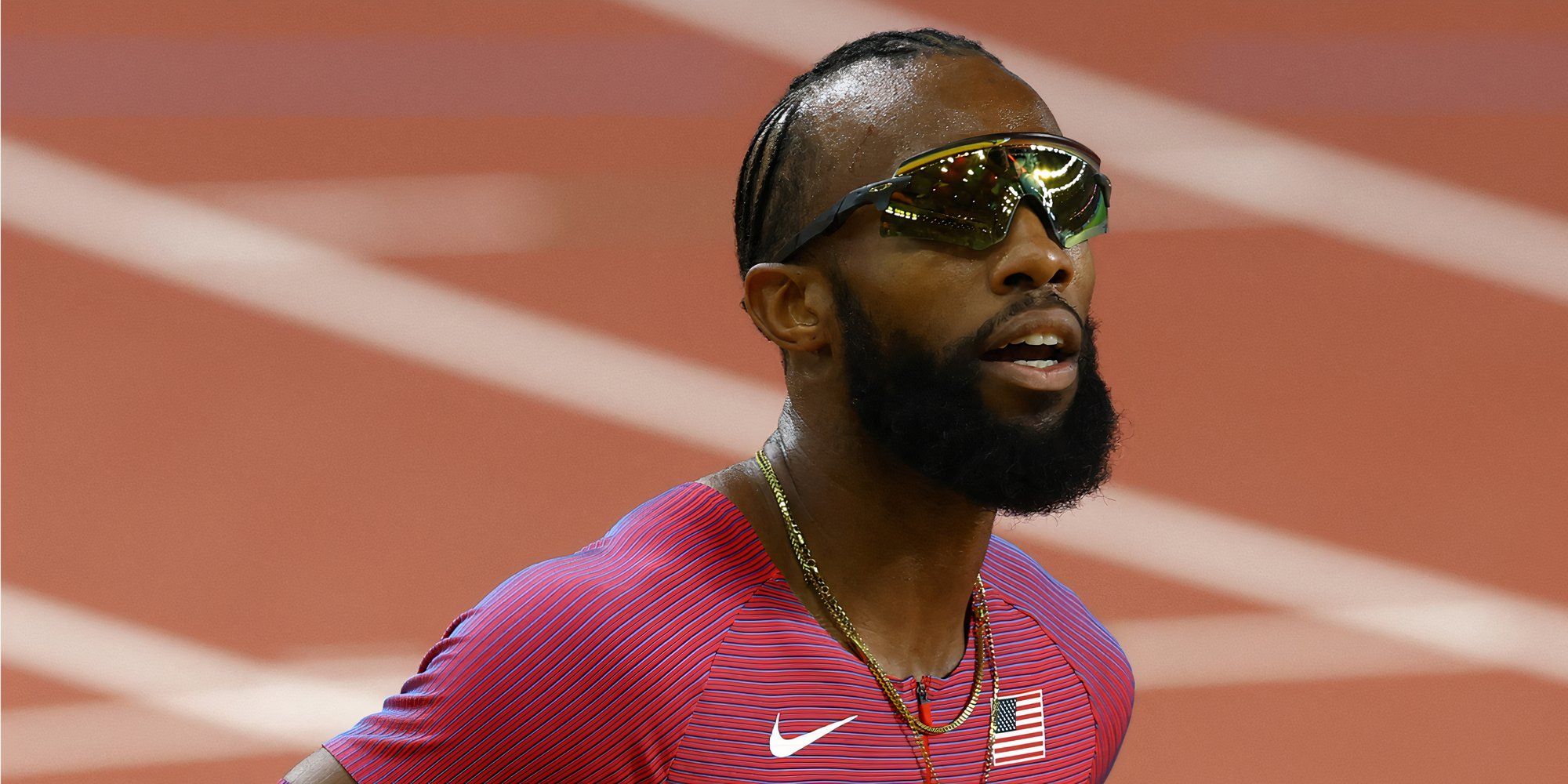Highlights
Team USA athlete Freddie Crittenden jogged through his hurdles heat at the Paris 2024 Olympics to rest due to a minor injury.
Fans were baffled by Crittenden’s slow performance in the heat, finishing far behind the competition at an unexpected time.
Crittenden plans to rely on the repechage round to advance due to his injury, providing a unique twist to the Olympic track event.
Team USA athlete Freddie Crittenden raised eyebrows by jogging through his heat of the men’s 110m hurdles at the Paris 2024 Olympic Games in order to give his body more time to rest after feeling a ‘little tweak’, relying on the repechage round to progress.
Viewers were bemused as to why Crittenden, 30, produced one of the strangest performances of this summer’s competition at the Stade de France. He was left behind by his fellow competitors moments after the race began.
The highly-rated American, whose personal best stands at an impressive 12.93 seconds, clocked in at 18.27 seconds. The winner of the heat, Senegal’s Louis Francois Mendy, came in at 13.31 seconds to qualify automatically.
Crittenden’s Unusual ‘Run’ Explained
‘One of the strangest performances you’ll see at the Olympics’

Currently ranked fourth in the world, he began his quest – notably, at his first-ever Olympics – for a medal in the second of five heats, where the top three finishers and the next three fastest times secure passage into the semi-finals.
However, while the rest of the race flew out of the blocks in order to earn some distance between themselves and their opponents, Crittenden’s approach was rather unconventional as he jogged down the track towards the finish line. His race was described as ‘one of the strangest performances you’ll see at the Olympics’. Watch the footage below:
Afterwards, with the arena in shock over what they had just witnessed, Crittenden – who came fourth in the 2023 World Championships – explained that he is currently nursing a tweak and, as a result, wanted to use the impending repechage round to give his body more time to rest and recuperate.
Per The Telegraph, Team USA’s hurdling sensation spoke to Eurosport after the event and said that he was slightly tainted by an injury, experienced in the warm-ups, and believed his best bet would be to save himself for the repechage on Tuesday.
Described as ‘slightly cynical but all above board’ by writer Greg Wilcox, Crittenden will be hoping that his injury woes ease before Tuesday, allowing him to make the top six and get into the semi-finals the less straightforward way.
Repechage Round Explained
Eligible in track events between 200m and 1500m including hurdles events
For all individual track events between 200m and 1500m, including all hurdles events, the Paris 2024 Games have ensured to include a repechage round, which is a change from the typical format we’ve borne witness to over the years. World Athletics President Sebastian Coe, one of the masterminds behind London’s 2012 bid, backed the change when the new round were announced in July 2022.
“The repechage rounds will give more exposure to our sport during the peak Olympic period and will be carefully scheduled to ensure that every event on our Olympic programme retains its share of the spotlight.”
But how does it work? Simply, a repechage allows those who have been knocked out in the early rounds – in Crittenden’s case, the heats – to have a second bite of the cherry at qualifying and making it into the semi-final stage.
Previously, the semi-finalists would be determined by the top finishers in each heat as well as – regardless of the heat – the next few fastest times. In layman’s terms: the best of the best. Those track races that include a repechage (the 100m dash, for example, does not) have now moved from three rounds to four, but it does ensure that every athlete is guaranteed to take to the track on two occasions.





